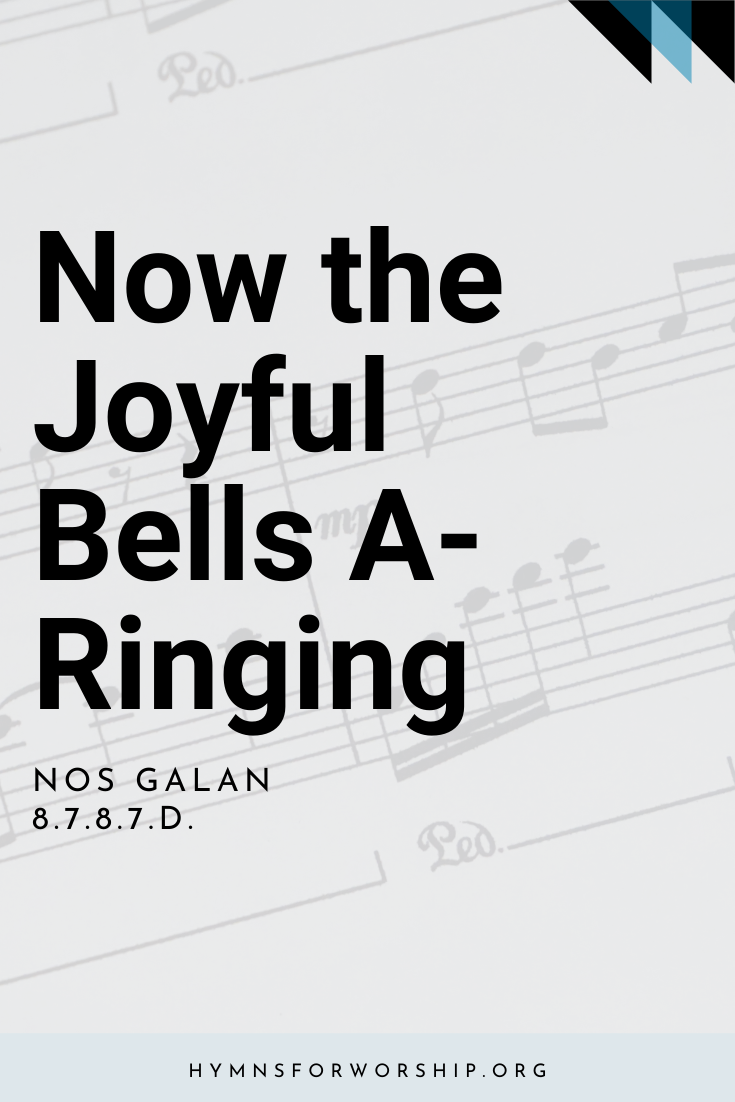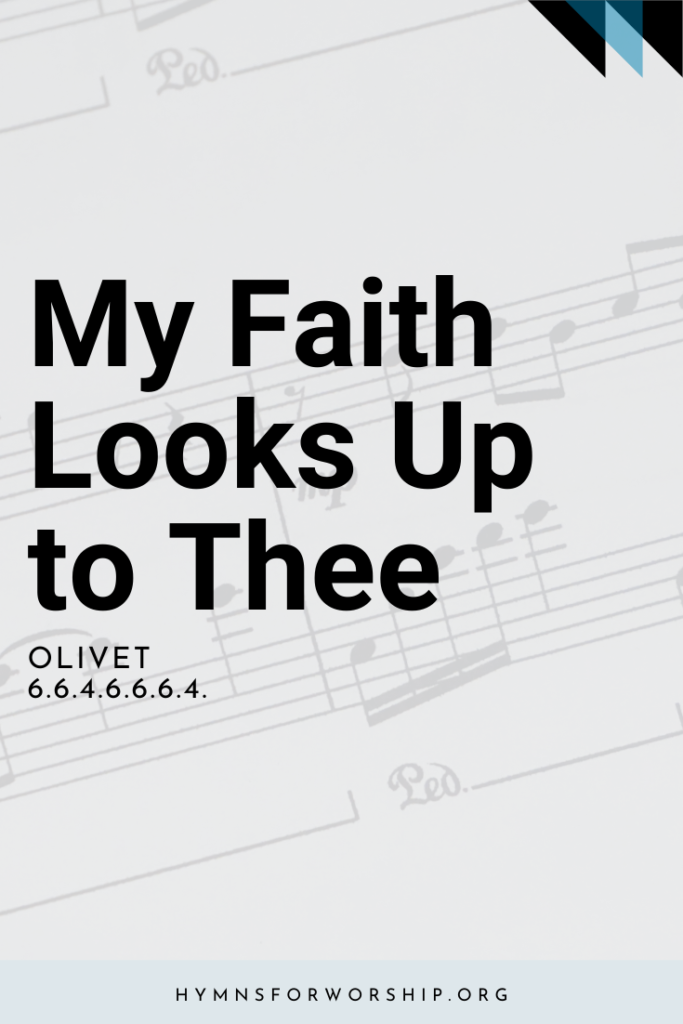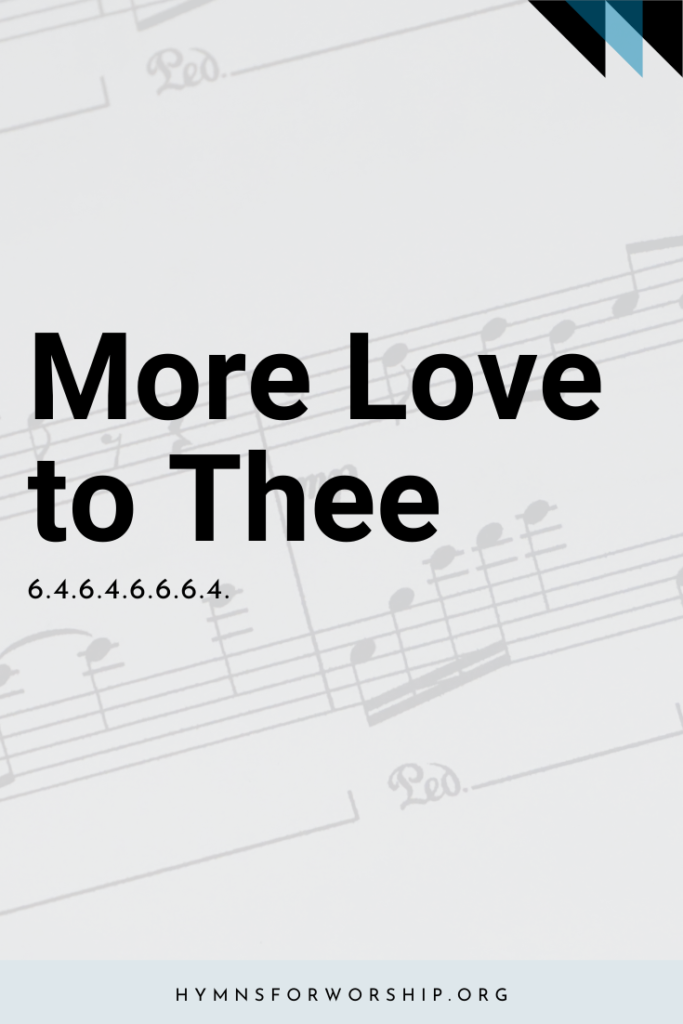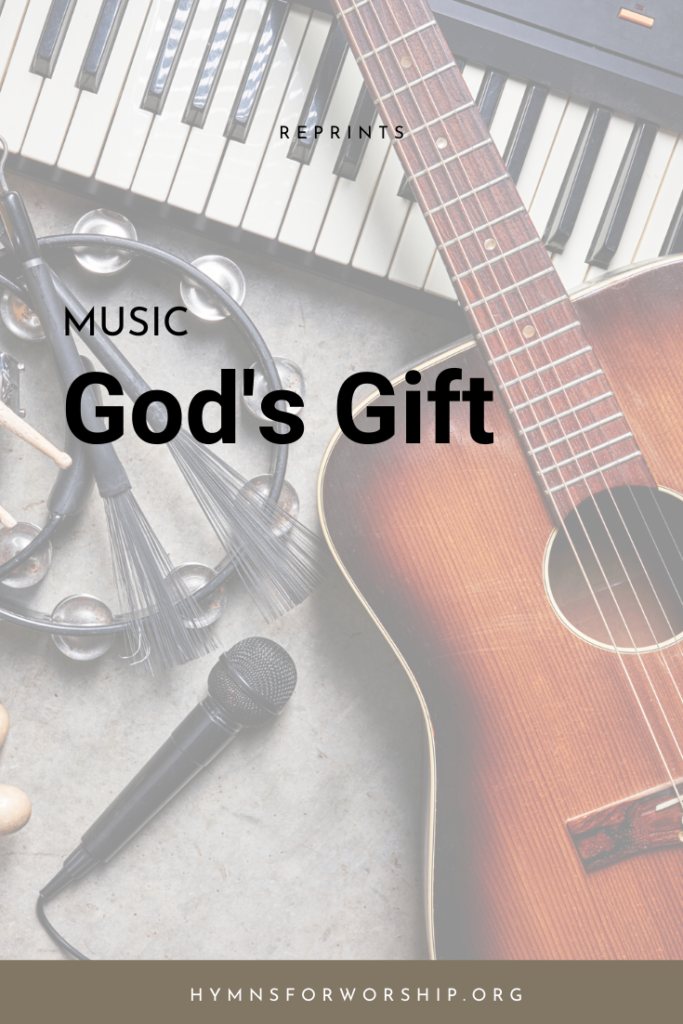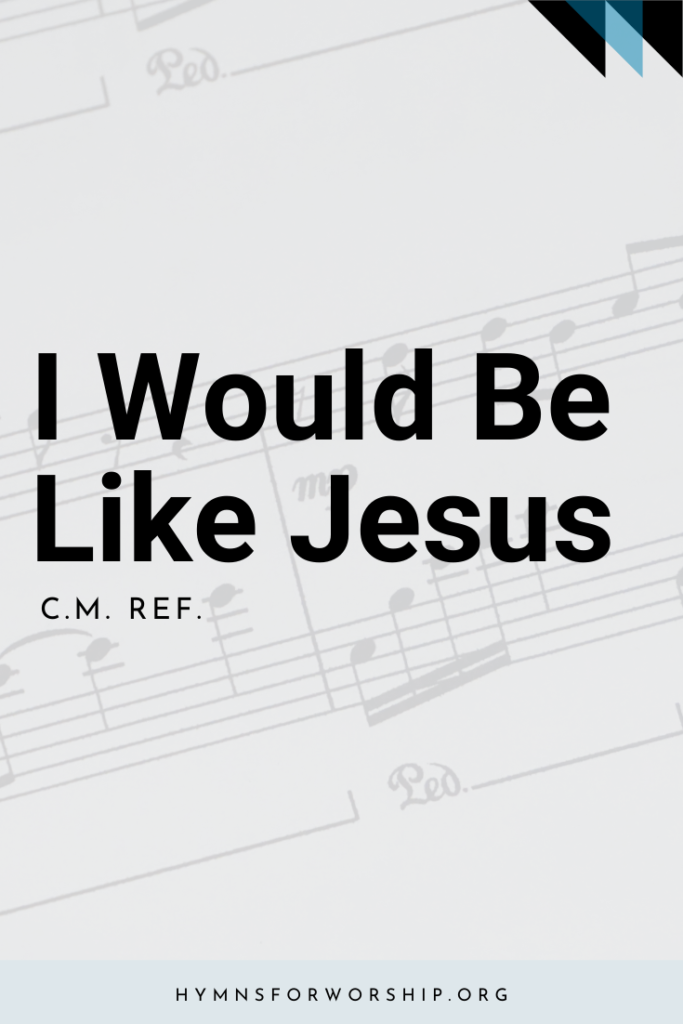WORSHIP >> Adoration & Praise
SDAH 23
Now the joyful bells a-ring,
All ye mountains of the Lord!
Lift our hearts like birds a-winging,
All ye mountains, praise the Lord!
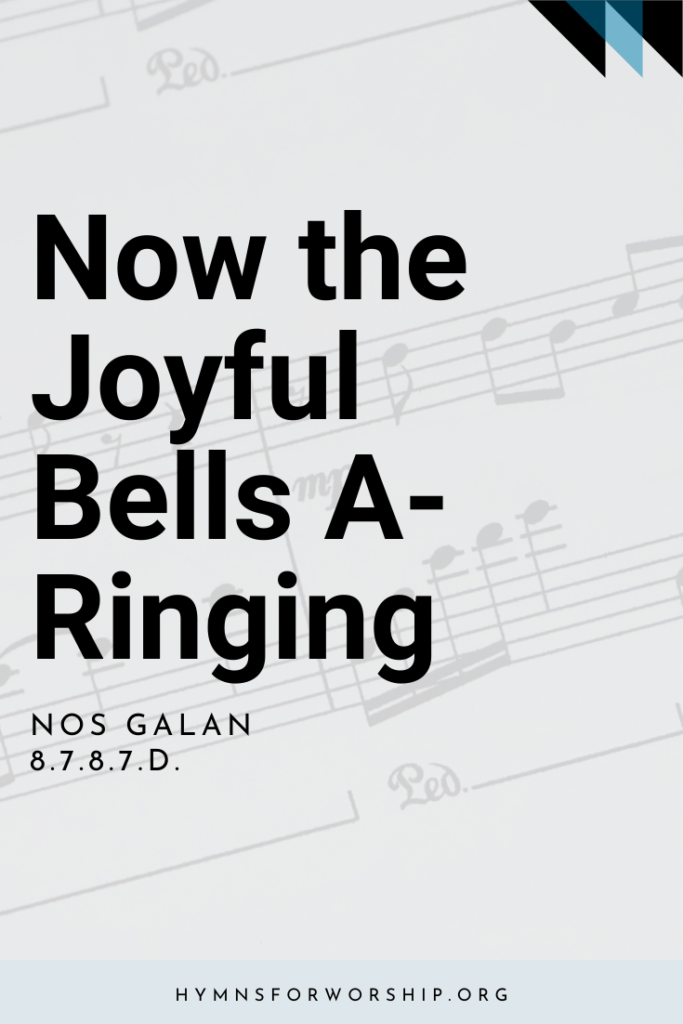
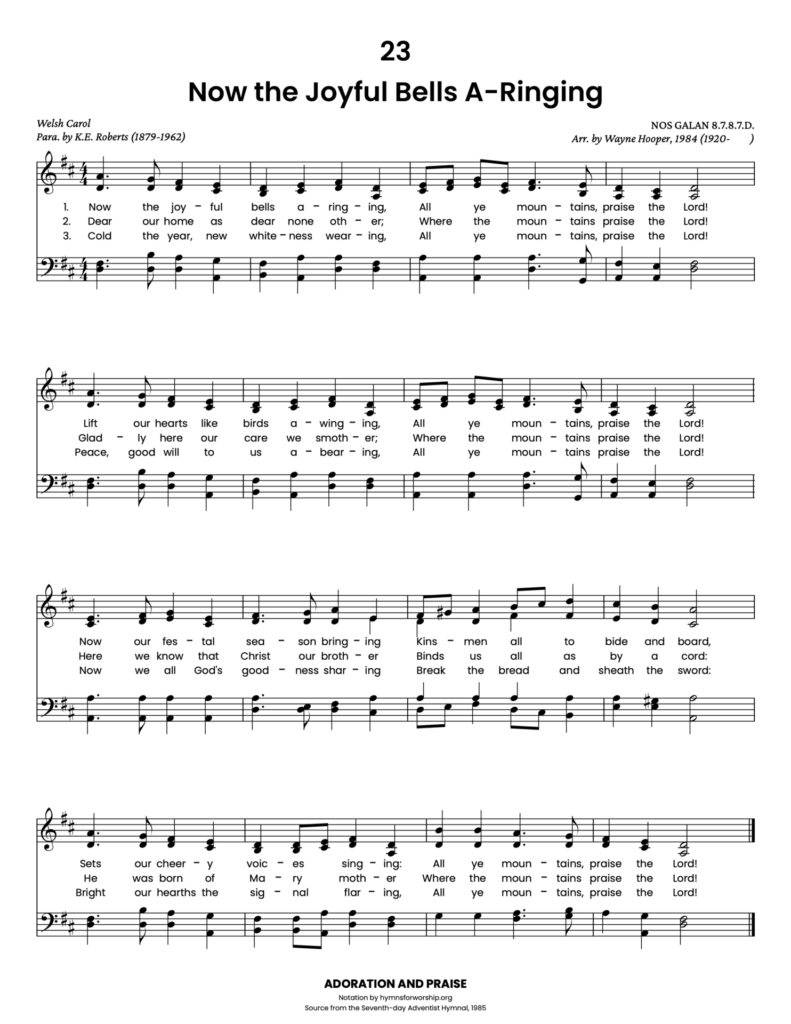
Get the hymn sheet in other keys here
For Worship Leaders
Make each hymn more meaningful with these helpful tools: Short, ready-to-use hymn introductions for church bulletins, multiple ways to introduce a hymn based on your worship theme and in-depth history and insights to enrich your song service.
Hymn Spotlight: Now the Joyful Bells A-Ringing
A bright and celebratory hymn, Now the Joyful Bells A-Ringing is based on the Welsh New Year’s Eve carol, Nos Galan—a melody widely recognized today as Deck the Halls. While originally a secular folk tune, it has been adapted into a joyful call to worship, celebrating the arrival of Christ with gladness and song.
The lyrics were written by Katherine Emily Roberts (1877–1962) and first appeared in the Oxford Book of Carols(1928). The tune’s Welsh heritage reflects a rich musical tradition where instrumental melodies were often paired with fresh lyrics to celebrate festive and sacred occasions.
Interestingly, Mozart appreciated this melody so much that he used it in a duet for violin and piano around 1700. The hymn’s lively setting, arranged by Wayne Hooper, makes it a joyful addition to worship, especially in the Christmas and New Year season.
As we sing today, may our hearts be lifted in celebration and gratitude, ringing out the good news of Jesus Christ!


Text
1
Now the joyful bells a-ring,
All ye mountains of the Lord!
Lift our hearts like birds a-winging,
All ye mountains, praise the Lord!
Now our festal season bringing
Kinsmen all to bide and board,
Sets our cheery voices singing;
All ye mountains, praise the Lord!
2
Dear our home as dear none other;
Where the mountains praise the Lord!
Gladly here our care we smother;
Where the mountains praise the Lord!
Here we know that Christ our brother
Binds us all as by a cord:
He was born of Mary mother
Where the mountains praise the Lord!
3
Cold the year, new whiteness wearing,
All ye mountains, praise the Lord!
Peace, good will to us a-bearing,
All ye mountains, praise the Lord!
Now we all God’s goodness sharing
Break the bread and sheath the Sword:
Bright our hearths the signal flaring,
All ye mountains, praise the Lord!

Hymn Info
Biblical Reference
(a) Ps 148:9 (b) Matt 2:11 (c) Luke 2:14
Paraphrase
K.E. Roberts (1879-1962)
Topic
Welsh Carol
Copyright
Words from Oxford Book of Carols by permission of Oxford University Press. Arrangement copyright 1984 by Wayne Hooper
Hymn Tune
NOS GALAN
Metrical Number
8.7.8.7.D.
Arranger
Wayne Hooper (1920-2007)
Year Composed
1984
Theme
ADORATION & PRAISE

